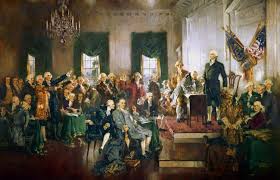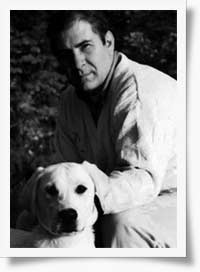 Max was a minister licensed to preach the gospel in California, a doctor, and a lawyer. He had a Ph. D., was a member of the International Platform Speaking Society, and was listed in several indices of prominent Americans.
Max was a minister licensed to preach the gospel in California, a doctor, and a lawyer. He had a Ph. D., was a member of the International Platform Speaking Society, and was listed in several indices of prominent Americans.
He was also a dog.
While standing in a supermarket line one morning during my days at the Senate, I found myself struck by a tabloid advertisement I saw over the shoulder of the person in front of me. For a small amount of money and minimal effort, the ad promised, anyone could acquire an advanced degree.
The ad made it sound so easy I decided to respond and see what would happen. Since I already had several degrees, I used our dog’s name – B. B. Maxwell – instead.
I filled out the form and sent them a money order for $75. Two weeks later, Max received a diploma from a school in California certifying he was a Doctor of Divinity. There were also instructions on the tax advantages of setting up his own church.
This amused me enough that I started looking for more opportunities to extend Max’s pedigree. Before long, the project took on a life of its own. Max began receiving more mail than I did. He was receiving solicitations for everything from medicine to mail order brides.
Mixed in with all this a year or so after it all began came a letter from the American Biographical Index. They indicated they chronicled prominent Americans, said they had become aware of Max’s achievements, and invited him to apply.
I filled in the form for Max, listing his occupation as a security specialist and his age in months. The plaque came a month later. Along with it was an invitation to buy a memorial copy of the Index for $299.
That led to still further honors and invitations, increasingly mainstream. The invitation to join the International Platform Speakers Association, for example, came from the distinguished journalist, Lowell Thomas.
Mr. Thomas pointed out that every President going back to Teddy Roosevelt had belonged to the IPA. Malcom Forbes, Barbara Walters, Robert Novak, and Patrick Buchanan were among the prominent Americans listed as current members. Under the circumstances, it would have seemed impudent to decline.
But when I saw how seriously people who should have known better were taking Max’s phony degrees, the project took on a new dimension. It seemed reasonable to suppose that not everyone who answered these ads had a pet and shared my sense of humor.
On that assumption, we opened a formal Congressional investigation and began systematically clipping and responding to questionable ads. The further we got into it, the more outrageous it became. Before long, it was clear the problem merited the attention of law enforcement agencies. We invited the U. S. Postal Service and the FBI to join us, conducting a sting called “Dipscam.”
The FBI found there were some 50,000 professionals operating in the United States with phony credentials. One diploma mill in Oregon, for example, had conferred 2,300 phony degrees to people who wanted to be doctors, chiropractors, psychiatrists and engineers. Another individual had sold 3,000 phony diplomas including 200 to Federal employees.
One of these people was an anesthesiologist at Fort Dix who failed to notice a patient’s heart had stopped during a routine operation. The patient suffered irreparable brain damage as a result.
Another of these individuals was masquerading as a surgeon in Nebraska. Not only had he not gone to Medical School, investigators later learned he had not even gone to college.
Ultimately, more than a dozen Congressional hearings spun out of this process. Businesses were closed. People were jailed. Laws were changed and Max became celebrated enough that John Stossel wanted to feature him on ABC’s 20/20. Max modestly declined.
Many times through that period, I couldn’t help thinking of the irony of it all. All of these bright and greedy people, people who had managed to thumb their noses at the educational system and the medical establishment, people who had outsmarted the state regulators and licensing officials, people who had eluded the police and all formal means of detection for years, brought to account by a dog.
During the middle ages, fools and court jesters were kept in the master’s house to amuse and entertain. Max made me wonder if much of what happens here on earth has a similar purpose. If so, God must love to laugh.





